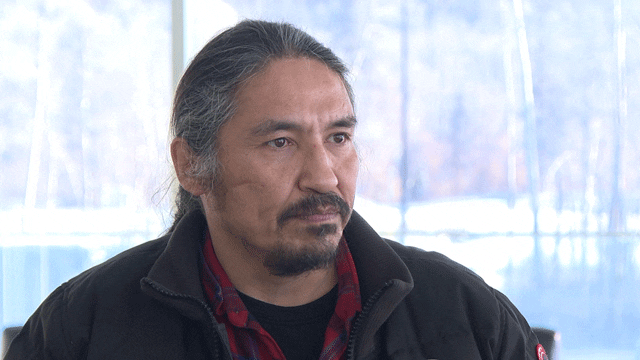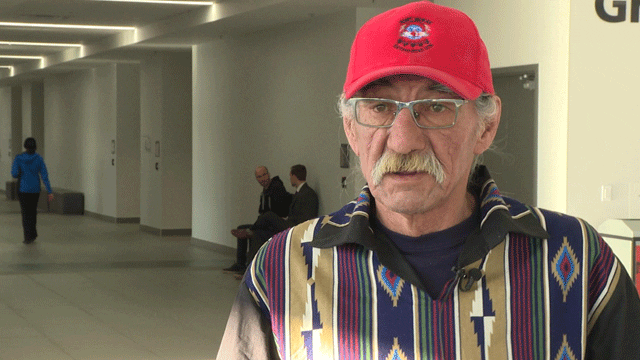Articles Menu
January 29, 2019
[See video at link here]
Members of the Athabasca Chipewyan First Nation (ACFN) in northern Alberta voiced its opposition to the Syncrude Mildred Lake extension project on Monday at a hearing in Fort McMurray, Alta.
“This project here is just going to continue to add to more problems we are having today,” said Chief Allan Adam of the ACFN.
“It isn’t going to get any better.”
The hearings are being held by the Alberta Energy Regulator (AER).
Extending Syncrude’s operation, 40 km north of Fort McMurray would allow the mine to produce 738 million barrels of bitumen the company said and create 1,160 construction jobs.
But it would also extend Syncrude’s operations on the ACFN traditional land by 14 years.

(Athabasca Chipewyan First Nation Chief Allan Adam at the hearings in Fort McMurray)
Adam is worried about declining water levels, elimination of caribou and moose habitats and contamination of the waterways.
“I remember, as a kid, you could drink water from the Athabasca River. You can drink water from the Athabasca Lake, you can eat the fish.” Adam said,
“I remember those days. But now, today, you can’t do it.”
The hearings have been ongoing since Jan. 22.
Dene Elder Roy Ladouceur lives off the land in Poplar Point.
He testified at the hearing and said low water levels have made travelling on ice roads difficult for transportation.
“Leave oil alone as it is for the time being,” he said. “Give mother nature its own space and time. Mother nature knows best how it goes about doing its own rehabilitation and reclamation.
“It’s all in her hands.”

(Dene Elder Roy Ladouceur)
Adam said the message he wants get across is “how we’re displeased with Syncrude’s behavior over the last 40 of operating in this region.”
In the 1970s, the town of Fort McMurray collaborated with Syncrude-owned Northward Developments to evict Indigenous families in Moccasin Flats to build the River Park Glen Housing Complex.
“Their agenda right from year one was basically to move the First Nations from the area.” Adam said at the hearing. “The Dene have been here for thousands of years and intend to stay here long after the project is finished.”
If approved, the oil sands mine would be in operation as soon as 2023.
Hearings for the project will continue until February 8.